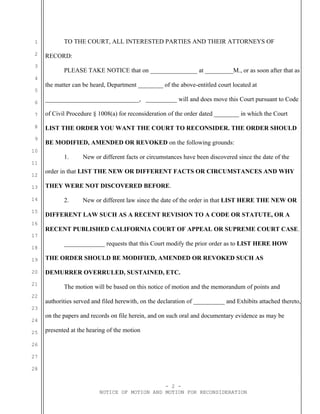

But to reset the appeal clock, the post-judgment motion must be timely filed. These motions stop the running of the appeal clock and restart it once the district court resolves the last motion. And the plaintiffs’ motion for reconsideration did not reset that deadline.įederal Rule of Appellate Procedure 4(a)(4) says that certain post-judgment motions can reset the time to appeal. The plaintiffs filed their appeal well outside the 30-day appeal deadline for that decision. § 1291.īut the appeal in Frew, the Fifth Circuit concluded, was untimely insofar as the plaintiffs sought review of the original fee decision. It’s enough to say that the collateral-order doctrine deems certain district court decisions “final” and immediately appealable for the purposes of 28 U.S.C. That doctrine’s requirements are irrelevant to the present discussion. But the Fifth Circuit had held in an earlier appeal that denials of interim fees awards are immediately appealable via the collateral-order doctrine. So the fee decision in Frew was not a final judgment more remained to be done in the district court. Post-judgment enforcement proceedings like those in Frew are often treated as a separate piece of litigation for finality purposes, with the final judgment coming once the district court is done supervising enforcement. Resetting the Deadline for an Interlocutory Appeal The district court denied reconsideration. Thirty days later, the plaintiffs sought reconsideration of this fee decision. The plaintiffs-being the overall prevailing parties in the litigation-sought fees for their efforts in resolving this dispute. And the district court sided with the state on the disputed issues. That required involving the district court. But a dispute eventually arose as to some specifics of how that decree would be implemented. Simplifying a fair bit, the parties in that suit ultimately agreed to a consent decree. The appeal in Frew arose from a nearly 30-year lawsuit over Texas’s implementation of a Medicaid program. But the lack of any rules expressly governing these sorts of motions and appeals should weigh in favor of some leniency. Granted, that means you get two extra days to seek reconsideration of interlocutory decisions. What’s left is the longstanding practice of saying that a motion for reconsideration that is filed within the time to appeal resets the deadline for an appeal, interlocutory or otherwise. That means no rule expressly governs how these other motions for reconsideration affect the interlocutory-appeal deadline. So the rules for those motions-including the time limits on their filing-would not seem to apply to motions for reconsideration filed after an interlocutory decision, even one deemed “final” under the collateral-order doctrine.

Again, the motions in Rule 4(a)(4) are post-judgment motions. With no timely motion, the notice of appeal-filed shortly after the district court denied reconsideration-was untimely as to the initial fee decision. Whether regarded as a motion under Rule 54(d), 59(e), or 60, the plaintiffs had at most 28 days to file their motion. The Fifth Circuit said that this was too late to reset the appeal deadline. The plaintiffs then moved for reconsideration 30 days later-within the time to file a notice of appeal, but 2 days later than allowed for any of the motions listed in Rule 4(a)(4).

The district court denied an award of attorneys’ fees in its supervision of a consent decree. Young, the Fifth Circuit applied Rule 4(a)(4) to an appeal under the collateral-order doctrine. The motions listed in Rule 4(a)(4) are largely, if not entirely, post-judgment motions. To reset that clock, however, most of these motions must be filed within 28 days of the judgment. Federal Rule of Appellate Procedure 4(a)(4) says that these motions stop the appeal clock, which restarts once the district court disposes of the last motion. But several kinds of motions-like those for judgment as a matter of law under Federal Rule of Civil Procedure 50(b), to alter or amend the judgment under Rule 59, or for relief under Rule 60-can reset that 30-day deadline. Civil litigants normally have 30 days after the district court’s final judgment to file their notice of appeal.


 0 kommentar(er)
0 kommentar(er)
